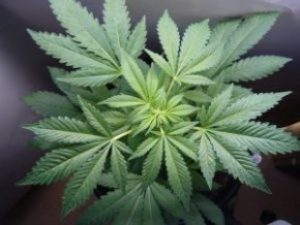 Cannabadiol, a substance found in hemp and other cannabis family plants, is the new “it” food additive. Coca-Cola is watching the cannabis market with an eye on a CBD infused drink.[1]Last year, EverX introduced a sports drink with 10mg of CBD that promises to improve workout recovery.[2] There is CBD infused cereal, tea, gum, protein bars and chews with a bonus caffeine kick. It is only a matter of time until CBD laden toddler teething biscuits and CBD boosted multiple vitamins are available at a store near you.
Cannabadiol, a substance found in hemp and other cannabis family plants, is the new “it” food additive. Coca-Cola is watching the cannabis market with an eye on a CBD infused drink.[1]Last year, EverX introduced a sports drink with 10mg of CBD that promises to improve workout recovery.[2] There is CBD infused cereal, tea, gum, protein bars and chews with a bonus caffeine kick. It is only a matter of time until CBD laden toddler teething biscuits and CBD boosted multiple vitamins are available at a store near you.
CBD’s meteoric rise in popularity is threatening to ruin a good thing. Unlike kale, the ‘it’ additive from a few years back or DHA, its predecessor, CBD is not ground up food or a brain-enhancing fat with no known toxicity. Nor is it like the usual vitamins or plant-based nutrients typically used to fortify foods. While there are always a few critics worried about potential toxicity from the nutrient fortification of foods, these have been theoretical worries. With the exceptions of calcium and vitamin D fortification, which are significant enough to correct dietary deficiencies, the small amount of vitamins or açaí essence added to make products look healthier are generally insignificant. For CBD, this is not the case.
Humans make CBD already. It is an active compound that modulates dozens, if not hundreds of biological pathways. There are receptors on most cells of the body that are specifically designed to bind CBD. In fact, CBD is part of an entire endocrine-like system that maintains homeostasis. Anyone who takes CBD will be adding it to what they already make. While it has wide and wonderful inflammation and mood modulating properties, it is not something that if a little bit is helpful, loads more is better. Yet, that is exactly the philosophy driving the industry.
CBD is an expensive additive, so many products will advertise its presence as a marketing ploy, but will contain little. But some, like EverX will contain potentially therapeutic amounts. The average consumer could easily lose track of how much they ingest between food and supplements. Since we do not understand our internal endocannabinoid system well, who knows how this will affect people? It would be a gigantic uncontrolled experiment.
Uncontrolled experiments can lead to illuminating discoveries or blow up the lab. Given CBDs tenuous legality, if this ‘if-some-is-good-more-is-better’ free for all goes badly, we may lose over the counter access to CBD altogether. That would be tragic. Use CBD therapeutically and thoughtfully, not indiscriminately.
[1] https://www.bloomberg.com/news/articles/2018-09-17/coca-cola-eyes-cannabis-market-in-push-beyond-sluggish-sodas

